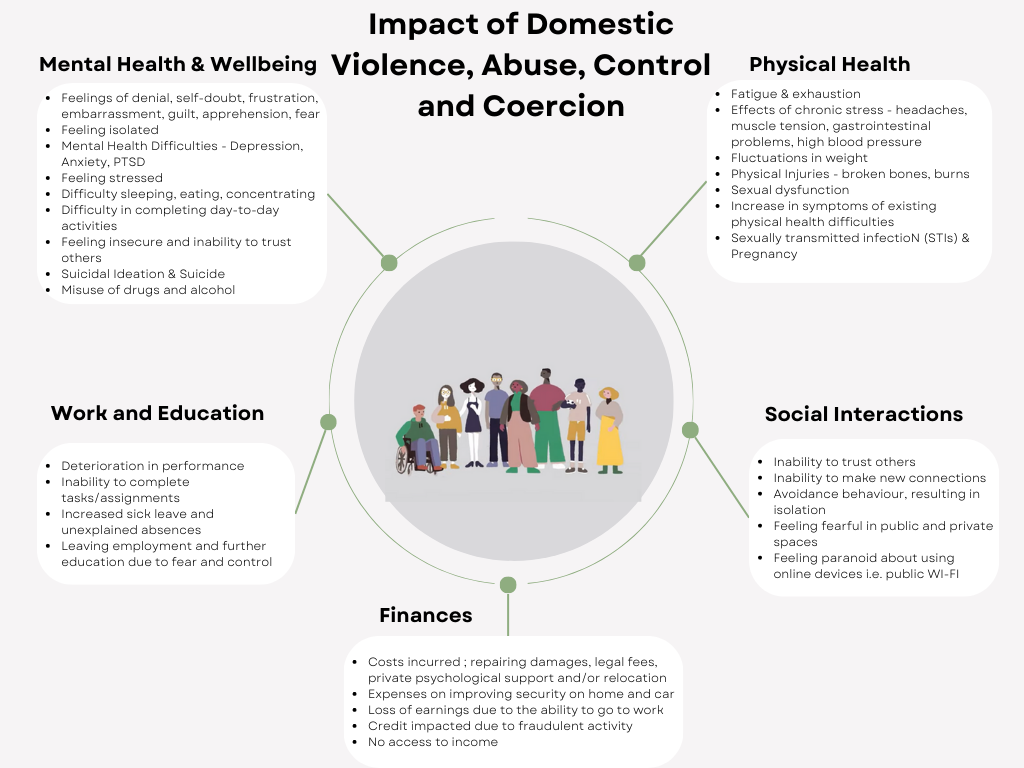What is Domestic Violence, Abuse, Control and Coercion?
Domestic Violence and Abuse is defined as an incident or pattern of incidents of controlling, coercive or threatening behaviour, violence or abuse between those aged 16 or over who are or have been intimidate partners or family members, regardless of gender or sexuality.
This can include but is not limited to the following types of abuse:
- Psychological
i.e. gaslighting, manipulation
- Emotional
i.e. public embarrassment, manipulating the victims emotions, verbal abuse
- Financial
i.e. control of income, credits cards/loan being set up in victims name, not allowing the victim to work or further education
- Sexual
i.e. rape, sexual harassment, sexual assault, forcing to participate or watch sexual acts
- Physical
i.e. punched, pinched, burnt, strangled, suffocated, restricting medication
- Psychological
i.e. gaslighting, manipulation
- Emotional
i.e. public embarrassment, manipulating the victims emotions, verbal abuse
- Financial
i.e. control of income, credits cards/loan being set up in victims name, not allowing the victim to work or further education
- Sexual
i.e. rape, sexual harassment, sexual assault, forcing to participate or watch sexual acts
- Physical
i.e. punched, pinched, burnt, strangled, suffocated, restricting medication
Controlling behaviour is defined by the Government as a range of acts designed to make a person subordinate and/or dependent by isolating them from sources of support, exploiting their resources and capacities for personal gain, depriving them of the means needed for independence, resistance and escape and regulating their every day behaviour.
Coercive behaviour is defined by the Government as an act or a pattern of acts of assault, threats, humiliation and intimidation or other abuse that is used to harm, punish or frighten their victim.

